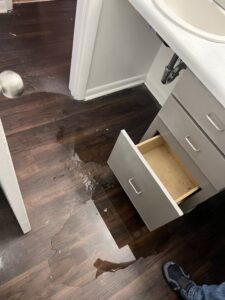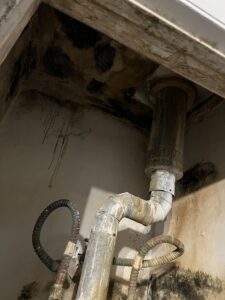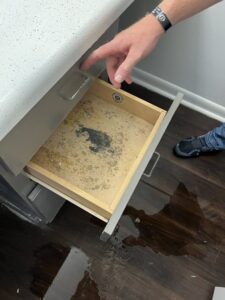
Gierra Williams, a fourth-year business administration student at Florida A&M University, was forced to move back on campus because of the condition of her apartment.
Williams is an out-of-state student from Atlanta. Her journey to finding housing initially began at FAMU when she was assigned to a double-unit at Palmetto Phase III. She opted out once FAMU offered upperclassmen the option to give up their dorm in exchange for rent compensation up to $1,079 per month and other health-related concerns.
“Due to COVID and the rising issue with monkeypox, I did not feel comfortable sharing a room with someone,” Williams said. “I also received an email asking if I could give up my on-campus housing for an incoming freshman. Knowing how convenient it was for me to stay on campus as a freshman, I immediately began searching for an off-campus option so that I could give up my housing to a freshman. This is when I then found The Social Seminole.”

The Social Seminole was one of the select few apartments with housing available in mid-summer. The complex claimed that the apartment would be move-in ready when Williams signed her lease on July 15.
“When I arrived at the front door of my apartment, I was initially shocked at the amount of trash that was by the front door,” she said. “I was also shocked to see the front door wide open. After going inside and seeing the many issues such as roaches, mold, water leaks, and missing and broken appliances, I was confused and in distress, as I was unsure of what my next steps would be, knowing that there was not just a housing issue happening on FAMU’s campus but also in Tallahassee.”
Williams had to wait an hour for the leasing office to assist her because of the number of unsatisfied residents at the complex.
“Someone then walked with me to view the apartment and let me know that it was not livable, and he would prioritize my issue and let me know of a solution by 6 p.m. that evening,” Williams said. “However, I never heard anything from anyone. After arriving at the complex again that evening since I had not heard anything, the manager refused to speak with me as she told me she was off the clock and that it was on me to figure out where I’d be staying during the issue.”
As a result, Williams had to pay for a hotel during the first week of school and has yet to receive compensation from the apartment complex.

Williams is not the only FAMU student with issues with off-campus housing. Kyami Cruz, a fourth-year sociology student from Atlanta, had a similar experience at The Social 2700 apartment complex.
“There were blood stains on my mattress and grime and mold in the bathrooms along with roaches all in the house,” Cruz said. “The couches looked like they had been through a shredder, and there was a big hole in the ceiling upstairs. Everything was a mess.”
Williams was fortunate enough to relocate back to campus in Palmetto South, but this is not the case for many students.
Carlynn Berry, a fourth-year nursing student and resident at Acasa apartments, decided to stay in her destroyed apartment because it was her only option.
“My apartment had its problems, but I decided to stay because it’s one of the only apartment complexes that would let me do a short-term lease as I will be graduating in the fall,” Berry said.
The director of housing at FAMU, Jennifer Wilder, declined to comment on FAMU’s housing issues.